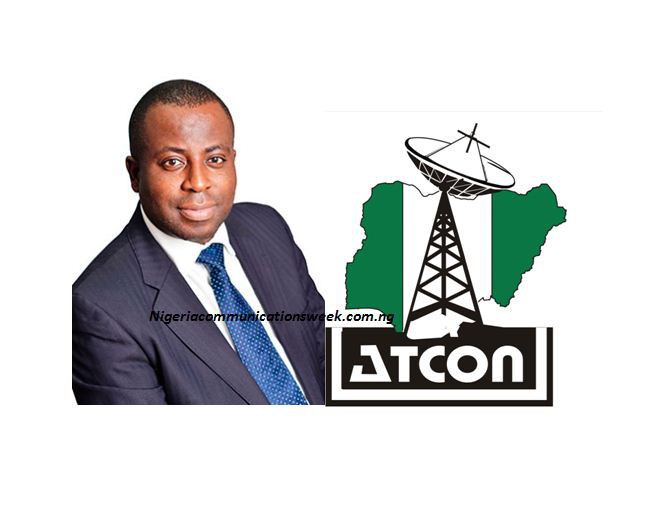Telecom
Nigeria, Others to Lag as Latest Mobile Technologies Adoption Soar

Nigeria and other sub Saharan African countries have been predicted to still retain second generation (2G) mobile technology in the next five years when other regions of the world would have migrated to newest technology, according to Ericsson Mobility report released recently.
Responding to its forecast that 2G will remain relevant in Nigeria and Sub-Saharan Africa, Nora Wahby, head of West Africa, Ericsson Middle East and Africa, who released the report in Lagos, attributed this to none availability of smartphones for fast technologies such as 3G, 4G and LTE in the region.
“Penetration of smartphones required for higher technologies are still low in this region and will continue for few more years to come. This has also affected subscription of 4G, LTE services,” she said.
Oladipo Raji, chief executive officer, InfraFocus Partners, explained that for 2G technology to remain relevant in Nigeria is not a matter of none availability of devices, but purchasing power of the subscribers as well as value and education.
“I think that the challenge is not that smartphones are not available but the resources to buy those high end devices are not there for many Nigerians, more so, some people in rural areas are not well educated on how to use some applications in these smartphones which to them does not add value to them,” he said.
On poor service delivery in the country, Raji attributed it to lack of investment on capacity. “In the last three years there has not been any investment on expansion of capacity by operators because of unhealthy business environment. Operators have rolled out 4G and LTE technologies, but no infrastructure to distribute it. Function of every government is to act as an enabler for businesses to thrive.
“In Nigeria, the case is different, there is no power, no cable operators, and infrastructure is not protected. The problems are obvious we just have to live with it,” he added.
Olusola Teniola, president, Association of Telecommunications Companies of Nigeria (ATCON) agreeing with the prediction said: “This is very true indeed and brings to reality the situation the industry finds itself after 10 years of a mobile voice telephony boom on the back of 2G network rollouts in sub Saharan Africa.
“2G represents the most viable and economical network for both rural and urban cities. The challenge still for Nigeria is to cover the 192 market gaps that 2G has failed to address. On the back of a pervasive 2G network subsequent upgrades to LTE/4G may be considered for true high speed broadband services,” he said.
On difficulty subscribers of GSM services in Nigeria face to enjoy 4G and LTE services, he said: “There are several challenges to the deployment of 4G in Nigeria. The first one is the lack of affordable 4G / LTE handsets that are available in Nigeria.
“Secondly, the lack of fiber to towers hosting current 4G BTS(s) this meant that true high speed broadband is not being truly experienced by consumers that have subscribed to those services on offer. Thirdly, lack of local content that is highly relevant has not created the demand that can justify the deployment of 4G beyond certain cities in Nigeria,” he added.
Responding to deployment of newest technology to less economic viable areas, Teniola said: “Unfortunately, Return On Investment is a key motivator for any operator to roll out services in a particular location. Beyond this it is the responsibility of Government to ensure universal service accessibility is achieved for those citizens residing in communities outside those attractive to commercial.
Telecom
MTN Says New N6.98 USSD Charge Won’t Affect Airtime Recharge

Lynda Saint-Nwafor, chief Enterprise business officer, MTN Nigeria, has assured the network subscribers that the new end-user billing system for the use of USSD services will jot affect them.

USSD, otherwise Unstructured Supplementary Service Data codes are commonly used for banking transactions, airtime recharges, and other mobile services.
The telco said that there is no significant impact or change other than the fact that they will now pay the same N6.98 per session (120 seconds) with their airtime instead of direct bank debit.
Saint-Nwafor, said this during a chat with MTN MIP fellows, explaining that the Central Bank of Nigeria (CBN) and the Nigerian Communications Commission (NCC) have ordered telecom operators to ensure that the new billing model resolves trust issues and ensures transparency in the billing process.
“Our regulator insisted that at the end of every month, we are going to be providing history and statistics on the performance of the service across the board”, she explained.
Saint-Nwafor added that the new billing model has standardized messaging across all operators and ensures consistent communication with customers.
“We will take all the error codes and map them into messages that are standardised across the board. So, if you initiate a transaction, you will know if it is failing. And, when the transaction fails, you will know if it is from your bank or the telco,” she explained.
Telecom
Crypto Scam Unmasked: U.S. Recovers Record $225m in Global Fraud Bust

The U.S. government has recovered $225 million in what is now the largest seizure of funds linked to a cryptocurrency investment scam.

In a statement released Wednesday, June 18, the U.S. Attorney’s Office said the recovery followed an extensive investigation by the FBI and the U.S. Secret Service, using blockchain analysis and other forensic tools. The statement did not confirm whether any arrests had been made.
According to the authorities, the stolen funds originated from fraudulent cryptocurrency investment schemes that tricked victims into believing they were making legitimate investments. More than 400 individuals around the world, including dozens in the United States, were reportedly affected.
The operation involved a sophisticated money laundering network that carried out hundreds of thousands of blockchain transactions to obscure the source and ownership of the stolen assets.
“These scams prey on trust, often resulting in extreme financial hardship for the victims,” said Shawn Bradstreet, Special Agent in Charge at the U.S. Secret Service office in San Francisco.
Bradstreet added that U.S. officials hope the recovered funds can eventually be returned to the rightful victims.
Cryptocurrency investment fraud accounted for over $5.8 billion in reported losses in 2024 alone, according to the statement.
Telecom
Nnaemeka Ani Calls on African Techies to Rewrite the Narrative

In a rousing declaration that is electrifying minds across the continent, Hon. Nnaemeka Ani, Special Adviser on ICT to Enugu State Governor, Dr. Peter Mbah, has called for a homegrown digital revolution under the banner “Africa Will Rise: By Code, By Courage, By Us.”

Hon. Nnaemeka Ani
The message, part challenge, part philosophical—seeks to galvanize African innovators to move beyond buzzwords and build technology with impact and legacy in mind.
“Let’s stop building for hype. Let’s start building for legacy,” Ani urged while speaking to ICT journalists over the weekend. “Let’s stop waiting for someone else. Let’s start creating the future—on our own terms.”
At the heart of Ani’s vision is a shift from tech consumerism to tech authorship. With innovation hubs sprouting across cities like Enugu, Lagos, Kigali, Jo’Burg, and Nairobi, and a growing community of developers, engineers, and entrepreneurs determined to solve Africa’s unique challenges, the movement is already taking shape.
Ani emphasized that Africa’s future lies not in flashy apps or international admiration but in persistent, intentional solutions that uplift communities—solutions that digitize public services, bridge rural-urban divides, empower women and youth, and build resilience in food and climate systems.
“We have the talent,” he said. “Now it’s time to harness it—to stop building for likes and start building for lasting impact.”
With support from leaders like Ani and rising momentum in Africa’s tech corridors, it seems that a new chapter is being written—one line of code at a time.

 General News3 days ago
General News3 days agoNASRDA, Galaxy Space Firm Sign MoU on Satellite Connectivity

 Telecom3 days ago
Telecom3 days agoOver 1m Nigerians Reached through MTN Staff’s Digital and Community Outreach

 Telecom3 days ago
Telecom3 days agoMafab Gets 0724 Number Series, Launches Mcom 5G Brand

 News3 days ago
News3 days agoDBN Awards N13m in Grants to Tech Startups

 Telecom3 days ago
Telecom3 days agoNCC to Name, Shame Telecom Infrastructure Vandals

 News3 days ago
News3 days agoFCCPC Shuts France, Belgium, and Italy Visa Centres in Abuja Over Alleged Consumer Rights Violations

 Telecom3 days ago
Telecom3 days agoWSIS Review: Nigerian ICT Leaders Urged to Shape Global Digital Future

 E-Financial3 days ago
E-Financial3 days agoBank Customers Petition CBN over Illegal Deductions, Demand Action
















